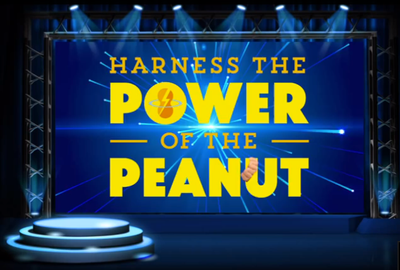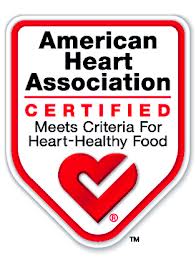
A study by the prestigious Harvard Medical School has shown that daily consumption of 1 oz. of peanuts can reduce risk of death from all major health causes by as much as 20 percent, says John Powell, executive director of The Peanut Institute, Albany, Ga., who discussed the findings at the annual meeting of the Mississippi Peanut Growers Association at Hattiesburg.

With USDA data showing peanuts to be the most frequently consumed nut in the U.S. — about half of all nuts eaten — a study by the prestigious Harvard Medical School has shown that daily consumption of 1 oz. of peanuts can reduce risk of death from all major health causes by as much as 20 percent.

JOHN POWELL
The study also showed that those who ate peanuts were leaner, “another great reason to have a daily handful of peanuts,” says John Powell, executive director of The Peanut Institute, Albany, Ga., who discussed the findings at the annual meeting of the Mississippi Peanut Growers Association at Hattiesburg.
“Peanuts are a lot tastier than prescription drugs, and a lot cheaper,” he says.
Ag news delivered daily to your inbox: Subscribe to Delta Farm Press Daily.
The study, “the largest and strongest to date looking at death from all causes in nut eaters,” was published in the New England Journal of Medicine. Researchers tracked almost 119,000 men and women from the Nurses Health Study and the Health Professionals Follow-up Study for a 30-year period, using multivariate analysis.
“Results showed that the more frequently peanuts were consumed, the lower the risk of death,” Powell says. “Compared to non-nut eaters, those who ate peanuts less than once a week reduced death risk by 7 percent; for weekly eaters, it was reduced by 11 percent; two to four times a week, 13 percent; and seven or more times a week, about 20 percent.
“When researchers looked at peanuts alone and compared them to a mixture of tree nuts, results were about the same. Dr. Charles Fuchs, who led the Harvard research team, said, ‘We don’t see any difference in the benefits between peanuts and tree nuts.’”
Previous research from the Harvard School of Public Health showed a 1 oz. serving or peanuts or a one tablespoon serving of peanut butter five or more times per week may reduce the risk of diabetes by 27 percent and 21 percent respectively. Additional Harvard work showed eating a handful of peanuts five or more times per week can reduce the risk of heart disease by 50 percent.
The study also showed that peanuts have more protein than any other nut, are a good source of fiber, vitamin E, folate, phosphorus, thiamin, copper, and magnesium, an excellence source of niacin and manganese, and are extremely high in phytochemicals.
“Nutrients in nuts … may confer cardio-protective, anti-carcinogenic, anti-inflammatory, and anti-oxidant properties,” it said.
Additional health benefits
Another study, conducted jointly by the Washington University School of Medicine and Harvard Medical School, showed that young girls who consumed a serving of peanut butter or peanuts at least twice weekly reduced their risk of benign breast disease in young adulthood by up to 39 percent.
“This gives parents even more reason to pack a peanut butter sandwich in their kids’ lunch,” Powell says. “It’s really rewarding for these studies to confirm that our products are not only great-tasting, but that they can make a difference in the health of kids and adults.”
Health promotion programs over the next 12 months will focus heavily on nutrient density, Powell says. “It’s something we’re going to hear a lot about in health promotion programs.
“Peanuts and peanut butter will meet at least 20 percent of the Recommended Daily Allowance of major nutrients, and 80 percent of others,” he says. “There’s not another nut as nutrient-dense as peanuts, and peanuts and peanut butter are the lowest cost of all nuts. This is the message we’ve got to get to consumers.”

PLANTERS PEANUTS has launched a TV/Web campaign, “Harness the Power of the Peanut,” to promote the health benefits of peanut consumption, as documented in a Harvard Medical School study.
Planters, America’s leading snack nut brand, is launching a campaign, “Harness the Power of the Peanut,” to remind people that peanuts are quite powerful for health benefits, Powell says.
In the integrated campaign, the familiar “Mr. Peanut” character, voiced by Emmy Award-nominated actor and former “Saturday Night Live” star Bill Hader, is featured in three TV and four digital spots.
In announcing the media campaign, Peter Cotter, brand manager for Planters, said, “Showcasing Mr. Peanut creates a fun and entertaining platform that's consistent with the Planters style — wit and charm while still communicating the wholesome benefits of peanuts.”
Planters also created a microsite (www.PowerOfThePeanut.com) that humorously depicts how protein and nutrients from peanuts can help reshape every aspect of peoples’ lives, from career to relationships to overall wellness. The site features “Successtimonials,” in which people share their success stories of how they've used the power of the peanut — both personally and professionally.
Powell says, “One of the first things we did as an institute, because of the concerns and national publicity about peanuts, was to sit down with manufacturers of peanut products and agree to work together to get a health label for peanuts. Working with the Food and Drug Administration, we were able to accomplish this. We now have heart healthy language labeling for many peanut products.
‘This was a major accomplishment, and most of the peanut companies are now using this language on their products.”
Approved for Heart Check logo
A more recent accomplishment was winning approval to be allowed to use the American Heart Association’s coveted “Heart Check” logo on peanuts.
“There were a lot of hoops to jump through,” Powell says. “But The Peanut Institute won permission to use the Heart Check logo for roasted, salted peanuts, and we’ve worked with manufacturers on qualifying to use the logo and on carrying out the Heart Association’s required promotional programs.
“Malcolm Broome, executive director of the Mississippi Peanut Growers Association, and his staff put a lot of work into this, and the Mississippi association was the first grower group to qualify to use the Heart Check logo on its promotional peanut packages. First South Farm Credit has been actively supporting this program, and we appreciate all they have done.”
Year-to-date consumption, covering five months of the reporting period, shows peanut consumption up by 10 percent,” Powell says, “and we hope the year-ending number will be much higher.
“Fifty percent of the nation’s peanut production goes to peanut butter, and for the Southeast it’s much higher. We’ve seen a steady increase in peanut butter consumption, and consumption of all peanut products is now at an all-time high. We’re very excited about this.”
Even so, Powell says, competition from tree nuts — particularly the well-financed almond segment — is stiff, and since year 2000 peanuts have been losing ground.
“Even peanut consumption is at an all-time high, within the world of nuts almonds have made a lot of progress in market share. The Almond Board gets about $40 million a year from their checkoff assessment, compared to only about $8 million for the Peanut Board. We face major competition in the nut world, and to move the needle in the marketplace, it’s all about money. So, we’ve got to work harder and smarter.”
About the Author(s)
You May Also Like



